|
Submissions are open from September 1st until December 15th. Follow the links above for genre guidelines and/or to order a copy of our current (or past) volumes.
from Sondra Olson’s About Hope Autumn is gone, not a trace of color left. Only this: the bleak advent of winter. Shorter days, colder nights. I want them to speed up and for winter, barely begun, to end. That, too, is illusion. from Gary James Erwin’s Migration I keep out of the way. Remember my father’s advice: stay quiet and just love. Understand where to place my footprint and how it should land, thankful for being saved. from Laurel Radzieski’s Testimonial When I was a woman, I was often portrayed as crawling.
0 Comments
Submissions for are open until December 15. Visit our website (www.clockhouse.net) for guidelines and to order a copy of our current (or past) volumes.
Please visit our website to order copies of Volume Nine and past volumes, and to submit for 2023's Volume Ten!
While you consider submitting to CLOCKHOUSE Volume Nine, here's something to read from Volume Eight. Submissions are open until December 15, and the guidelines and submissions upload button are on the website.
from Laura Ruby's "Our Last Kiss" Maybe it started with an octopus named Amelia, who chucked rocks and bad shrimp out of her tank, clocking her handlers one by one, then vanished through a drain the size of a dime. Or maybe it was the squirrels, little hangnails, chattering a litany of losses—nuts, kits, trees. The dolphins in no mood for tricks. The deer arranged on the frosted lawn like the angriest Christmas pageant after eating the poison set out to keep them from the holly. from Monet Lessner's "Midnight in the Garden" I remember a night from my childhood with such unnatural precision that I can recall the number of scuffs along the floorboard I saw when I woke. There were three. Dark smudges at different heights. Two to the left of the door and one to the right. I can’t remember the name of the rabbit I owned briefly that year, or the face of my third grade teacher, or why my mom threw away all my candy the day after Halloween, but I know that my window curtains didn’t meet completely in the center; just enough moonlight entered to give everything a worrisome glow. Sometimes when I walk into my daughter’s room at night, the string lights cast shadows around her bed, and an overwhelming melancholy fills me. Old visions rise up, and I have to push them away, kiss her sleeping forehead, pray that her youthful musings will always be sweeter than mine. There was a little table beside my bed with an ivory lamp. The shade was worn pink, probably something passed down to me from cousins. I can hear the click as I turned it on in semi-darkness, a distinct sound in the paranormal silence. It was winter; my sheets were cold, but I felt a sickening heat, starting in my stomach and coming out like dew along my body. And I remember the dream. While you consider submitting to CLOCKHOUSE Volume Nine, here's something to read from Volume Seven. Submissions are open until December 15, and the guidelines and submissions upload button are on the website.
from Jill Frances Johnson's Ghats: I’m racing down Kalimati Road heading for the bazaar, what we call downtown back in America. A chicken surprises itself and me by running into my bike’s front tire. A man yells over the chicken’s squawks, but I pump hard and don’t look back. My cycling has improved since moving to Kathmandu. I swerve around a toddler at the road’s edge, swerve again to avoid a porter hunched under his bulging basket. Neck of steel, calves of iron, I write in my head. I’m thinking about my article due tomorrow for the school newspaper. The porter turns his head and spits a streak of betel juice, red flecks sticking to my sneaker. Detouring through Himalaya Heights, the expat community where most families live, I’m on the lookout for one of my friends to go to town. When we first moved into Round House I complained, wanting to be in the American development. Now I like our house, which is circular and white and tall like a three-layer birthday cake. We live in half the cake, our apartment three floors top to bottom. Dad likes to joke how he can never corner my mother. While you consider submitting to CLOCKHOUSE Volume Nine, here's something to read from Volume Six. Submissions are open until December 15, and the guidelines and submissions upload button are on the website.
from Joel Tomfohr's The Inviolable Rule of Love: My dad hunched over the shovel, his back broad, and thrust down and withdrew the fresh, heavy, white snow. He had already moved out, but he came by the house on days after snow had fallen and cleared the sidewalks anyway. Again, and again with the chucking and crunching of the shoveling of the snow and it lulled me into a trance. Throughout that white winter after my older brother Jason had been admitted to the hospital, I sat alone in his bedroom, my younger brother Gabe alone in ours while alone my mom simmered orange peel and clove in a pot of water on the stove in the yellow kitchen, filling the house with the warm scent of citrus and spice, magical because all in winter was scentless. In that cold and white winter I slept beneath the warm winter blankets laid across Jason’s bed for him by my mom. I dreamed that it was spring, the ice and snow thawed, and my family had been reunited, but the lake of my town filled so that it rose above the grassy banks and flooded the town we lived in, the town of my childhood. In that cold and white winter I was tormented by dreams that seemed like memories, and memories that seemed like dreams. Nothing was real. Everything was real. While I slept the snow still fell outside and it was the silence of a dying boy falling and it fell like a pall over our house on Wilson Avenue. While you consider submitting to CLOCKHOUSE Volume Nine, here's something to read from Volume Five. Submissions are open until December 15, and the guidelines and submissions upload button are on the website.
from Helene Barker Kiser’s poem, Bathsheba, to Her First Child: The moment I tilted my face to the sun, hot, even sinking, I felt the king. Or rather, felt eyes sharp as a crow’s. Heat like touch, like a wall of film around me, a substance, heat of his hands but not his hands . My body a fever-- blood-red bloom of a cactus-- the bath water evaporated, surprised by the burn. Strangely calmed by the attention, I loved the early evening, the beginnings of shadows. The sun, I thought it the sun still, unrelenting. I didn’t know there were men around, the war raging on. I didn’t know there was something the king had to do. The CLOCKHOUSE Volume Nine submissions period is now open! To see guidelines and to submit, just click on "Submit" in the top menu. And for your reading pleasure while you're considering submitting, here's an excerpt from Volume Four: from Lucas de Lima’s poem, because: while they gallop their horses to death
the men’s eyes get bigger the swelling of the roots that upheld the sky merging me & pinto, rainbow & cloud the crisscrossing of myths in a scream so loud it wakens the razorbacks a ripple across the herd every cowboy unhorsed by the roaming of continental horses 8,000-10,000 years ago the unseeing no longer allowed when the arc of our chicken bodie s emboldens the point where sky meets earth where me & pinto wash our feathers we don’t know what we’re preparing for but the infinite seeding of our constellation in the horizon this place & unplace a point already red & black where me & pinto wash our feathers we don’t know what we’re preparing for but the hurling of a rock thru our bodies our thrashing & singing on every scale The CLOCKHOUSE Volume Nine submissions period opens on August 15. In the meantime, here's an excerpt from Volume Three:
from Jennifer Pullen’s Little Red Riding Hood(s), a work of fiction: I Little Red Riding Hood isn’t really named Little Red Riding Hood, her name is Elizabeth, or Mary, or some other good English name. Regardless of whether her name is Mary or Elizabeth she always loves the smell of her mother’s baking, the way she can wake up as dawn wipes gray out of the sky, and even though she has to go milk the cows, gather eggs and pull water from the well, she’s happy. She’s happy because the smell of bread fills her nostrils and makes her feel loved and cared for. Everyone acknowledges her mother as the best baker in the village. Everyday her mother sends her down the path to the edge of the forest to her grandmother’s cottage with a loaf of bread in a basket, because her mother says that a daughter’s duty (she looks pointedly at Mary/Elizabeth as she says this) is to take care of an aging mother. So, Mary/Elizabeth walks down the path every day and brings a loaf of bread. But one day she gets a riding hood of bright scarlet from the church charity bin, and the story starts to swallow her name. If you watch carefully you might be able to see the story lurking in the dusty corners of that church waiting to envelop her. The hood is red and soft and warm and looks like nothing her family could ever afford. Red dye is expensive, red dye belongs to the rich, red dye screams for attention. A grown woman might have one red kirtle for feast days, but only a rich person would make a red riding hood for a little girl. But Mary/Elizabeth gets the hood and then wears it on the walk to her grandmother’s. Wolves can’t see the color red (lacking the appropriate cones to do so), but that doesn’t stop the wolf from seeing the girl and smelling her blood in her veins—hot-alive, and also red. That doesn’t stop the story from going on, doesn’t stop Mary/Elizabeth from getting eaten, it doesn’t save her grandmother, and it doesn’t stop that beautiful bread from going to waste because the wolf is sated on so much red bloody-person-meat. Sometimes a woodcutter saves them, cutting open the wolf, and the grandmother and the girl emerge, probably covered in nasty smelling stomach acid, and hug the wood cutter and everything turns out okay. Sometimes they both get eaten. Sometimes just Mary/Elizabeth. Sometimes the wolf is clever, sometimes the wolf is stupid. But always Mary/Elizabeth ends up as Little Red Riding Hood and always a wolf eats someone. The versions where no one gets eaten aren’t real, and everyone knows it. The CLOCKHOUSE Volume Nine submissions period will open on August 15. In the meantime, here's an excerpt from Volume Two:
from Nancy Kricorian’s poem, Letter to Palestine (with Armenian proverbs): In a foreign place, the exile has no face. You wake up in the morning and forget where you are. The smell of coffee from the kitchen. The sound of slippers across the linoleum floor. It could be any country. When you look in the mirror you see the eyes of your grandfather. He expects something from you, but he won’t tell you what. |
CLOCKHOUSE
A national literary journal published by the Archives
July 2023
Categories |
Proudly powered by Weebly

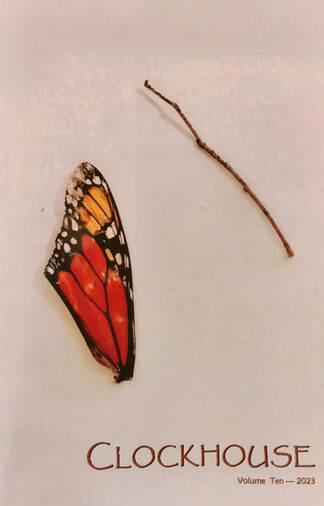
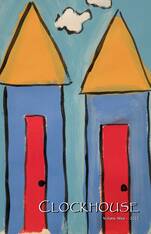
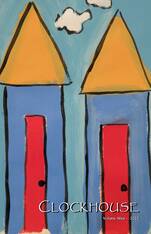
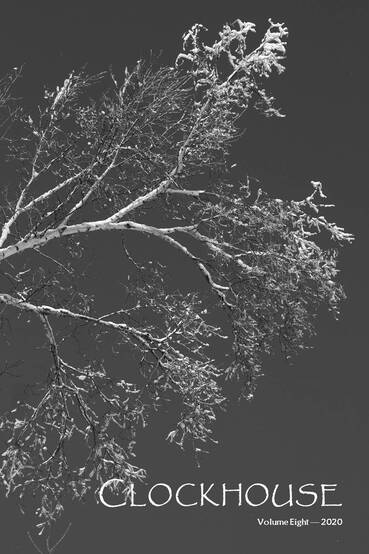
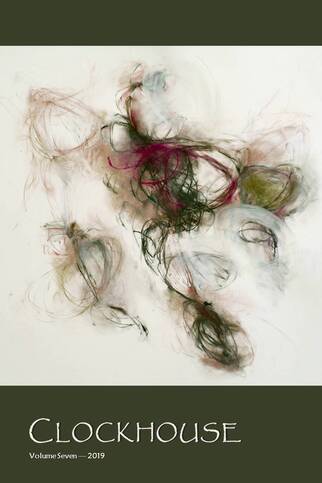
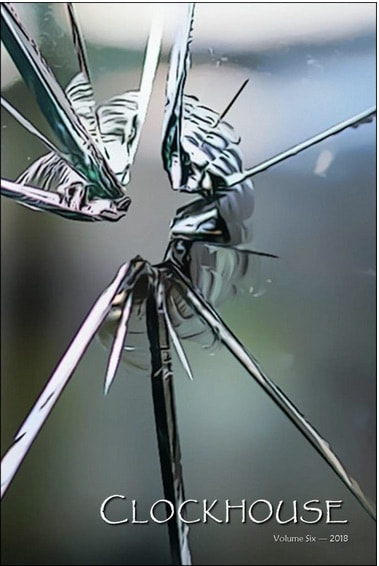
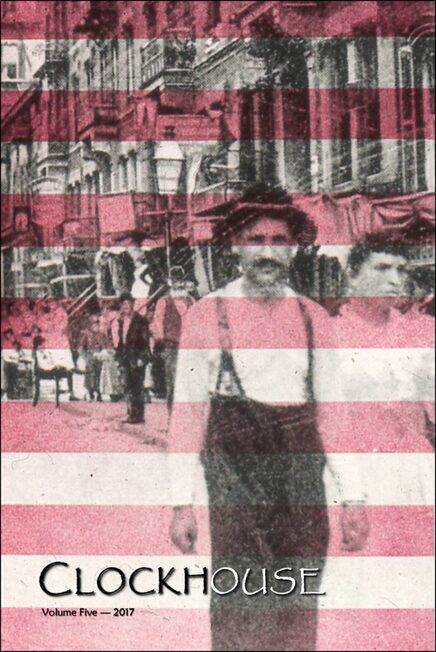
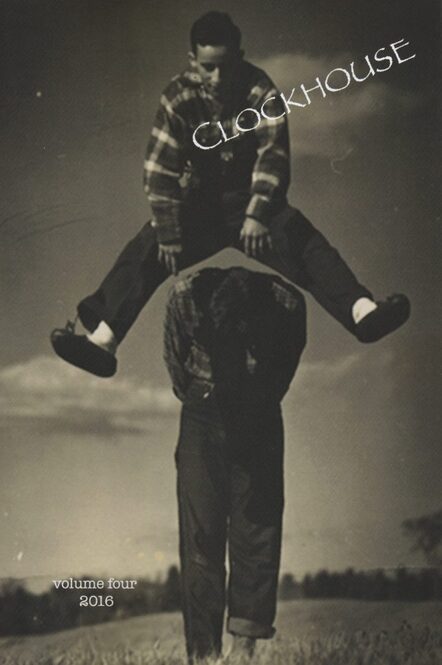
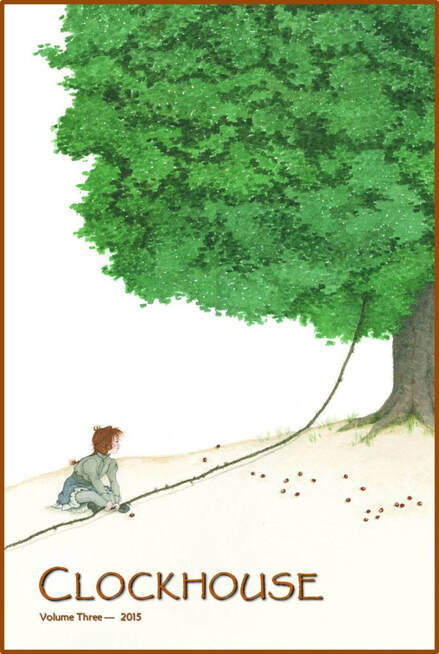

 RSS Feed
RSS Feed